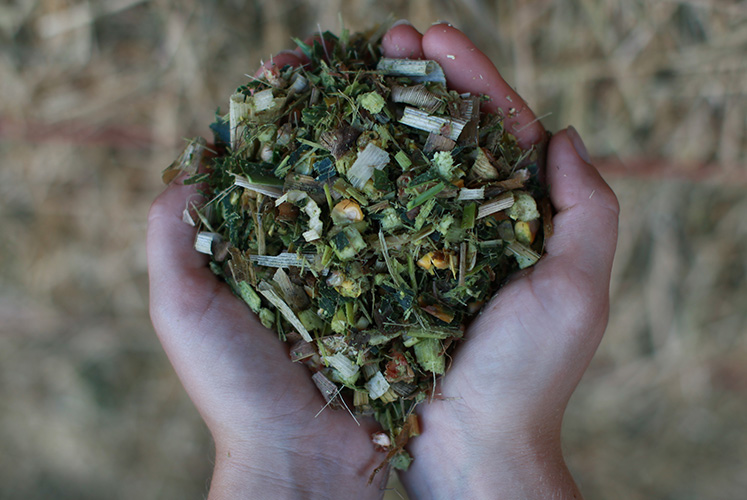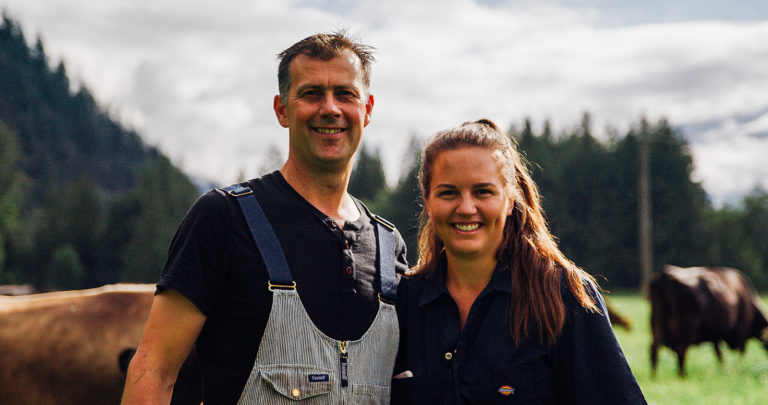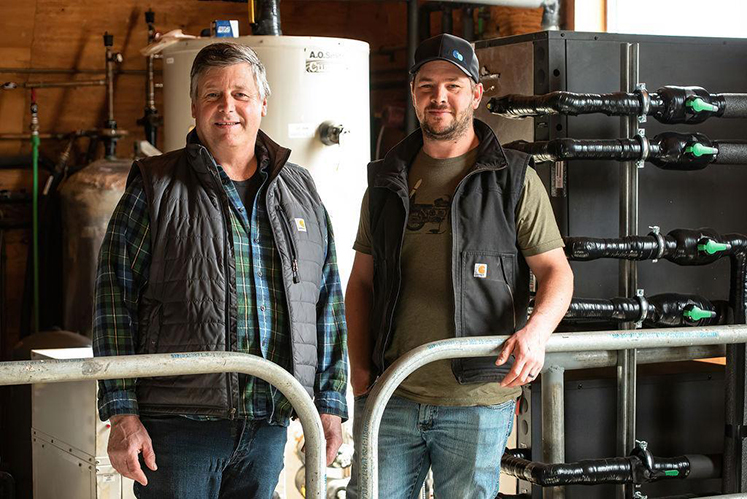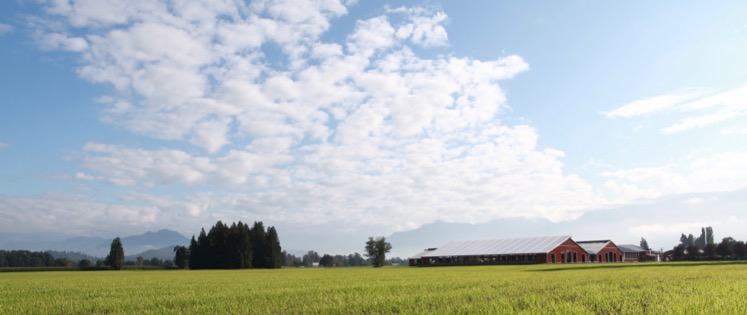Did you know that BC dairy farmers work with animal nutritionists to make sure their cows receive all the nutrients they need?
Just like you and I, cows need a mixture of different kinds of food to maintain a well-balanced diet. Just as kids are taught to eat their fruits and vegetables in order to “grow big and strong”, many farmers consult nutritionists to ensure their cows are eating a well-balanced diet.
Dairy cows require a lot of energy to make delicious and nutritious milk. Grass and corn grows very well in our temperate BC climate, so many farmers are able to produce local and nutritious food for their cows.
Farmers are usually able to store their grasses wet or dry. This ensures that cows will have feed all year round. Dry feed is usually cut and rolled into hay bales. Wet feed, called silage, is a mixture of fermented alfalfa, barley, and/or oats. These feeds are usually mixed in with dry hay, vitamins, minerals and other supplements to create what farmers call a “ration”. This mixture is usually specific to their herd, and may change based on the recommendations of a nutritionist or veterinarian.
Many grains, such as wheat, barley, and oats are also grown in BC, and provide cows with quality carbohydrates. Farmers may add in vitamins, minerals, and energy supplements into the feed to make sure that their cows are healthy and growing strong. For some farms, supplements can include a small amount of fats such as palm products (see DFC’s statement on palm products here). The use of supplements varies from farm to farm, and is typically less than 1% of a cow’s diet.
Did you know dairy cows love salt? “Salt licks” serve as electrolytes as they often carry essential nutrients such as calcium or vitamin D. These minerals help promote muscle development and blood flow, and maintain proper digestion.
The average dairy farm in BC has 145 milking cows. A farmer creates a TMR—total mixed ration—to blend together the dry and wet feeds, carbohydrates, vitamins, supplements and minerals. Cows can be picky, so this step is necessary! Cows will often use their nose to find their favourite feeds (and it’s usually the carbs!). Dairy cows are ruminants; this means, when they eat, they chew their food (called cud), swallow, and return the food to their mouth before chewing again. Cows can spend around eight hours a day chewing their cud!
Our hardworking dairy farmers ensure that cows are given a balanced diet in order to produce each glass of Canadian milk. Just like cows, our diets need a mixture of essential vitamins and minerals in order to fuel our day.
Still curious about cows? Click here to find out how milk gets from farm to table.



